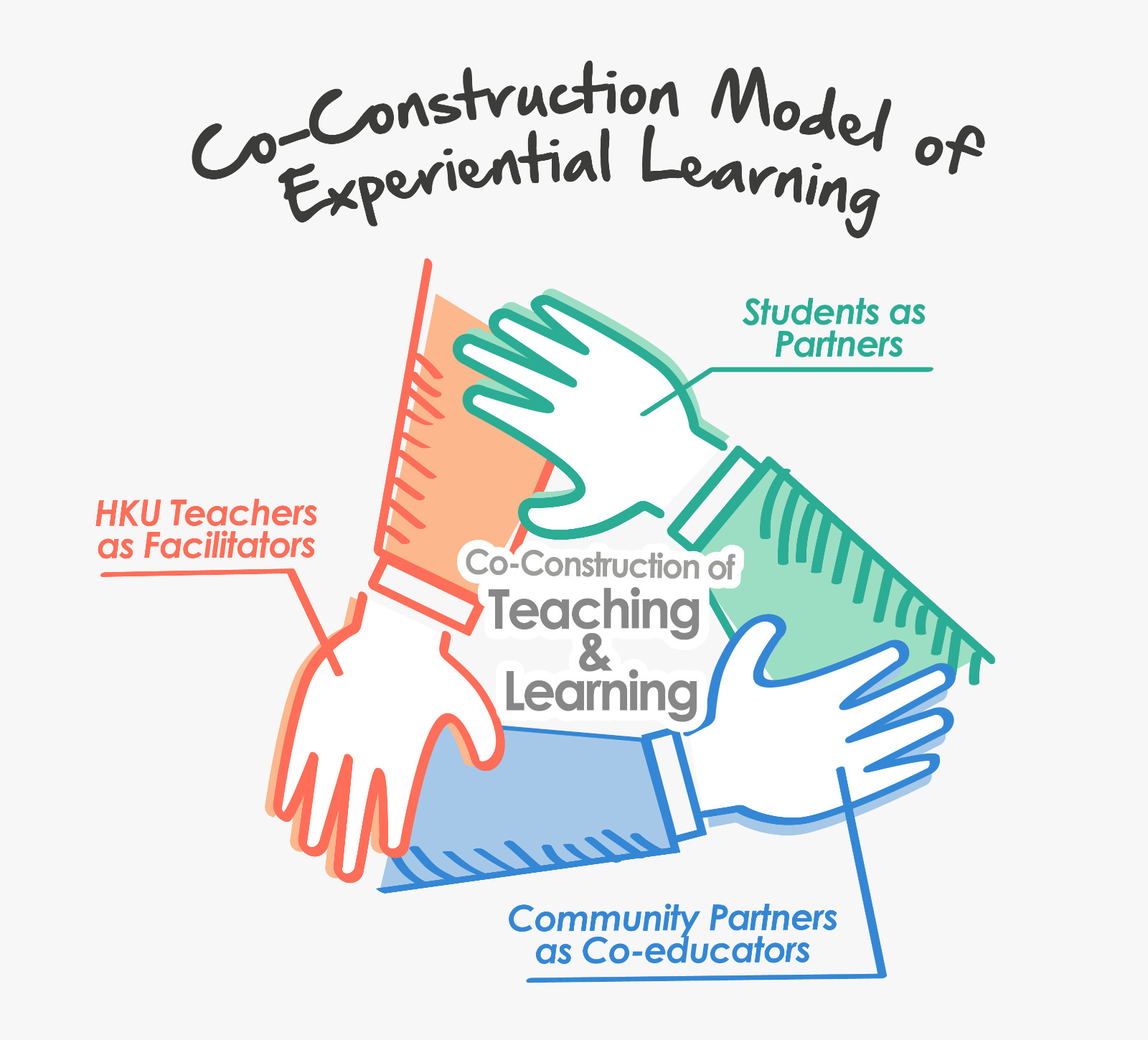The Social Innovation (SI) and Global Citizenship (GC) graduation requirements will take you out of classroom and go beyond the local boundary for your experiential learning of social issues. The learning process will take place in various social and cultural contexts, including different work settings. This form of learning puts experience and reflection at the center. By actively engaged in the process, the learner constructs their understanding of social issues and knowledge.
Instead of offering linear learning and instruction in a traditional classroom from teachers to students, we emphasize a tripartite learning approach in co-creating this experiential learning experience. The three major contributors in this learning process: Students, Academic Tutors and Community Partner Supervisors would each play a transformed role in co-constructing learning.
Co-construction Model of Experiential Learning
The Experiential Learning of the Faculty of Social Sciences has adopted a co-construction pedagogical model among stakeholders:
Students as Partners: Students would take on the agency and ownership of the learning process. Rather than a passive learner in the classroom, the students will actively contribute to their own learning in the learning process.
Academic Tutors as Facilitators: Academic Tutors will work alongside with you to support you to deal with the novel problem together as facilitator of your learning.
Community Partners as Co-educators: They are not only your “boss’ or “supervisor” in your workplace. They would also be here with you as your mentor and coach to guide you through the learning process in a real-life social context.

